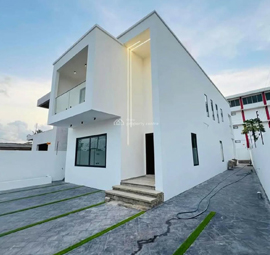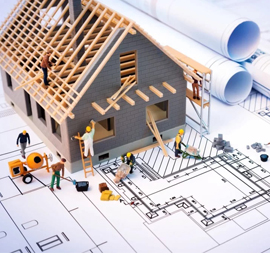Property Constructions
- home
- Services
- Property Constructions
Constructing a property, whether it's a residential home, commercial building, or industrial facility, is a complex process that requires careful planning, precise execution, and attention to detail. In this article, we'll delve into the world of property construction, exploring the key stages, factors to consider, and best practices to ensure your project is completed on time, within budget, and to your exact specifications.
The Construction Process: A Step-by-Step Guide
Planning and Design: The first stage of property construction involves creating a detailed design and plan, including architectural drawings, engineering specifications, and permit applications.
Site Preparation: Once the plans are in place, the construction site must be prepared, including clearing the land, excavating the foundation, and installing utilities.
Foundation Work: A strong foundation is crucial to the structural integrity of the property. This stage involves laying the foundation, including the footings, walls, and slab.
Framing and Structural Work: With the foundation in place, the next stage involves constructing the frame, installing windows and doors, and adding the roof.
Installation of Mechanical Systems: This stage includes the installation of plumbing, HVAC, and electrical systems.
Insulation and Drywall: Insulation is installed to ensure energy efficiency, and drywall is used to create smooth walls and ceilings.
Finishing Work: The final stage involves installing flooring, cabinets, countertops, and fixtures, as well as completing the exterior finishes, such as siding and painting.


Factors to Consider in Property Construction
Budget: Establishing a realistic budget is crucial to ensuring the project is completed on time and within budget.
Timeline: Creating a detailed project timeline helps ensure the construction process stays on track.
Regulations and Permits: Compliance with local building codes, regulations, and permit requirements is essential.
Sustainability and Energy Efficiency: Incorporating sustainable materials and energy-efficient systems can reduce the property's environmental impact and save on energy costs.
Quality and Craftsmanship: Ensuring high-quality materials and expert craftsmanship is vital to the property's durability and longevity.
Best Practices in Property Construction
Hire a Reputable Contractor: Partner with an experienced and licensed contractor who shares your vision and values.
Communicate Effectively: Regular communication with your contractor, suppliers, and stakeholders ensures the project stays on track.
Plan for Contingencies: Identify potential risks and develop contingency plans to mitigate delays and cost overruns.
Inspect and Test: Regular inspections and testing ensure the property meets quality and safety standards.
Conclusion
Property construction is a complex process that requires careful planning, precise execution, and attention to detail. By understanding the construction process, considering key factors, and adopting best practices, you can ensure your property is constructed to your exact specifications, on time, and within budget. Whether you're building a dream home, commercial facility, or industrial complex, partnering with a reputable contractor and staying informed throughout the process will help you achieve your goals.
We are just a few miles away.
- - Make A Decision
- - Make An Appointment with Us
- - Get A Free Consultancy Service
- - Choose A Service From Our List .
- - Let's Get Down To Work
Contact our team to learn more!
